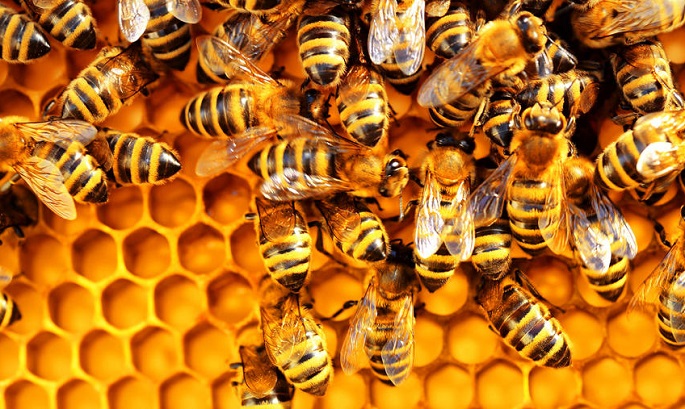Honeybees more selective in choice for nutrition than thought
Published : 05 Oct 2023, 02:37
The choices honeybees make have an impact on their health and also on humans, as honeybees pollinate important crop plants, said the University of Helsinki in a press release on Wednesday, quoting a study.
An international research group examined which plants honeybees favour when collecting nectar and pollen.
Honeybees have been considered generalists when selecting flowering plants, in other words, they can use a wide range of different plants. However, recent research has showed that honeybees are quite selective.
"Honeybees choose certain plants as their food resources, and these choices differ among time points and, within a time point, even among bee colonies within the same apiary. As an example, at a time point, a colony would collect nectar and pollen mainly from different plants", said Helena Wirta, a researcher of the faculty of Forestry and Agriculture at the University of Helsinki.
"Based on our results, honeybees are more selective than assumed, using only a fraction of available plants. Thus, to fulfil its nutritional needs, it is likely to need a wide selection of plants from which to select suitable ones", said Wirta.
Nectar is the main source of carbohydrates for bees, while they obtain protein and fat from pollen. In this study, honey and pollen samples were collected from beehives. DNA was extracted from these samples, and the plant origin of the DNA was determined.
Plant species differ in the protein quantities and in the composition of amino and fatty acids of pollen, as well as in the quantity and composition of sugars in the nectar.
Honeybees then select certain plants that provide the nutrients they need. As an example, based on the DNA of the honey and pollen samples used in the study, bees would use raspberries especially in mid- and late summer for nectar, while early in summer they would collect both nectar and pollen from blueberry and cow parsley.


